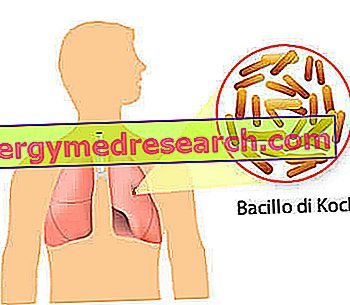Generality
Lung transplantation is an extremely innovative and useful therapeutic option to improve the quality of life of all those patients suffering from various end-stage lung diseases (terminals), and who have no contraindications to such an important surgical intervention.

Since 1983, when the first lung transplant was successfully performed, the number of interventions, at international level, has increased dramatically. Currently, around 2, 000 lung transplants are estimated to be pending worldwide each year. Unfortunately, however, there is still a shortage of organs, so that one patient in six on the waiting list dies before a donor organ is available. Therefore, strategies to increase the number of donors are crucial. Furthermore, the long-term prognosis after a lung transplant is still not as good as for other transplant procedures, especially due to the countless complications that can arise. In addition to chronic infections, organ dysfunction is the leading cause of death and the most important limiting factor in prognosis. Other problems that can arise are rejection, bronchial complications and primary post-lung transplant dysfunction.
Article Index
Lung transplant candidates Selection of recipients Indications and contraindications Waiting list and allocation of organs Transplantation procedure Postoperative monitoringTransplant candidates
In specialized centers, candidates for lung transplantation are chosen based on specific disease factors, after the exclusion of any complications.
Lung transplantation is indicated for all those diseases at an advanced stage that no longer respond to therapies, and with limited long-term prognosis: pulmonary emphysema, COPD (chronic obstructive bronchopathy), pulmonary fibrosis, cystic fibrosis. The ideal candidates are people under the age of 60 who need continuous oxygen therapy and who do not have significant comorbidities (presence of two or more diseases in the same individual). Furthermore, these candidates should have a survival time of 5 years, without transplantation, of less than 50% to be ideal.
Currently, almost all useful lungs for transplants are explanted from donors with brain death and have an intact pulmonary arterial circulation.
The survival rate after lung transplantation must be assessed taking into account the type of underlying disease for which it is performed and the individual course. Lung transplantation usually does not cure the disease, but allows treatment to be limited.
Selection of receivers
The candidates for lung transplantation, first of all, are carefully examined to diagnose any comorbidities that could have negative effects on the success of the transplant ( Table n.1 ). In patients over 50 years of age, particularly relevant for transplantation are some concomitant diseases such as: cardiovascular problems, organ failure (especially kidney and liver) and tumors. This is mainly because, after a transplant, considerable quantities of anti-rejection drugs are administered (which are immunosuppressive, that is, they suppress the immune system): they, in a not perfectly healthy individual, can cause serious consequences and even lead to death. In younger patients, especially those with cystic fibrosis, it is also important, before transplantation, to scrupulously search for a possible focus of infection, especially at the level of the teeth and paranasal sinuses, and treat it with antibiotics. You can proceed to the intervention only after its complete recovery. Furthermore, all patients who have a severe loss of muscle mass due to weeks or months spent in bed or on a wheelchair, or who are able to walk with only a few steps are not candidates for lung transplantation. Before considering them suitable for lung transplantation, an attempt should be made to improve muscle status.
An absolute contraindication to lung transplantation is represented by an ongoing malignant tumor. A person who has had a malignant tumor in the past, should not have recurrences for a minimum of two years and, for breast and colorectal cancers, for at least 5 years. Finally, active smoking, drug or alcohol addiction are also not acceptable for lung transplantation.



